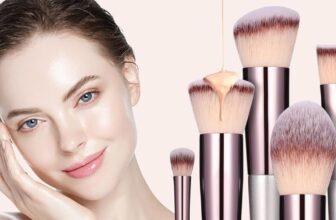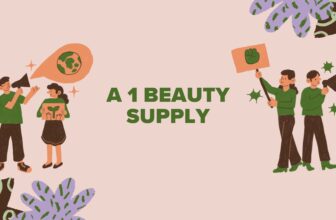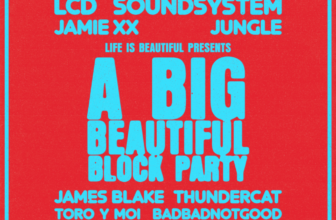Many people wonder if wearing makeup is a sin. This question often leads to strong opinions and varied beliefs.
Makeup has been a part of human culture for centuries. Some view it as an art form, while others see it as misleading. Understanding the different views on makeup is important. For some, makeup enhances beauty and boosts confidence. Others believe it goes against natural beauty.
Religious and cultural beliefs often influence these opinions. This topic opens up discussions about self-expression, beauty standards, and personal values. Exploring these ideas can help clarify why people may see makeup in different ways. Is it simply a choice, or does it carry deeper meaning? Let’s dive into this thought-provoking question together.
The Historical Context Of Makeup
Makeup has a long history. People used it in ancient times. Egyptians wore kohl to protect their eyes. They also used red ochre for their lips and cheeks. These early uses show how important makeup was.
Different cultures have different views on makeup. In some times, makeup was for the rich. In others, it became popular among all classes. Today, many see makeup as a form of self-expression. It lets people show their unique style.
Makeup trends change often. What was once seen as bad is now accepted. People now celebrate creativity through makeup. This change reflects how society thinks about beauty.

Credit: m.youtube.com
Religious Perspectives On Makeup
Makeup plays a different role in various religions.
In Christian doctrine, some believe makeup can be a form of vanity. Others think it is acceptable as long as it does not distract from faith.
Islamic views on makeup vary widely. Some Muslims see it as a way to enhance beauty. Others believe it should be used modestly and not for showing off.
In Hinduism, beauty practices are often celebrated. Many Hindus use makeup for festivals and rituals. It is seen as a way to honor their gods.
Makeup And Morality
People often wonder about the ethical side of wearing makeup. Some believe it shows vanity. Others feel it helps them express themselves. Different cultures see modesty in many ways. In some places, modesty is very important. In others, it is okay to wear makeup and look beautiful.
Many cultures teach that being humble is good. They say too much focus on looks is wrong. Still, many see beauty as a way to feel confident. It can also boost self-esteem. The balance between modesty and beauty is different for everyone.
Understanding this balance is key. Respecting personal choice matters. Each person’s view on makeup and morality is personal.
Psychological Impacts Of Wearing Makeup
Wearing makeup can boost self-esteem for many people. It helps them feel confident and ready for the day. Some studies show that makeup can change how one feels about themselves.
Makeup also affects social dynamics. People often judge others based on their looks. A well-done makeup look can lead to positive attention. This can make social interactions easier and more enjoyable.
In some cases, makeup can create pressure. People may feel they must wear it to be accepted. This can lead to feelings of inadequacy without it.
Understanding these effects is key. It helps people make informed choices about makeup use.
Health And Safety Of Cosmetic Products
Many people use makeup every day. They want to look good. But, some makeup has toxic ingredients. These can harm our skin and health.
Understanding these ingredients is very important. Look for safe products. Some makeup brands follow strict rules. They check their products for safety.
Regulations help keep makeup safe. They make sure companies use good practices. This means fewer harmful chemicals in products. Always choose brands that care about health and safety.
| Ingredient | Effect |
|---|---|
| Parabens | May cause skin irritation |
| Phthalates | Linked to health risks |
| Formaldehyde | Can cause allergies |
Societal Expectations And Makeup
Many people feel pressure to follow beauty standards. Society often tells us how to look. Makeup can be a way to fit in. It shows that we care about our appearance.
Gender norms also play a big role. Women often feel they must wear makeup. Men, on the other hand, face different expectations. Some men wear makeup too. They challenge the traditional ideas of beauty.
Many movements fight against these standards. People want to be accepted for who they are. They encourage others to embrace their natural looks. Self-expression is becoming more important. It helps people feel confident and proud.
Makeup As A Form Of Expression
Makeup is a way for many to show who they are. It can be a fun form of artistry. People use colors and styles to express their feelings.
For some, makeup builds confidence. It can help someone feel more empowered. Choices in makeup reflect personal identity. Each look tells a unique story.
Using makeup can change how we see ourselves. Some feel more beautiful with it. Others use it to feel bold or creative.
Makeup allows for self-expression. It can be a joyful part of daily life. Everyone has their own reasons for wearing it.

Credit: lifelibertyandlove.com
Concluding Reflections On Makeup And Sin
Many people feel strongly about makeup. Some see it as art. Others think it is deceptive. Balancing personal beliefs with social views is tough.
Beauty standards vary across cultures. Some cultures accept makeup, while others do not. Each person must decide what feels right for them.
Sin is often defined by personal values. What feels wrong for one person may not for another. It’s important to think about what makeup means to you.
Makeup can enhance beauty. It can also hide insecurities. Understanding your reasons for using it is key.
Beauty should be about self-expression. Everyone deserves to feel confident. Focus on what makes you feel good.

Credit: www.bethanyjett.com
Frequently Asked Questions
Is Wearing Makeup Considered Sinful?
Wearing makeup is not inherently sinful. Many cultures and religions view it differently. It often depends on personal beliefs and intentions behind using makeup. Many people use it for self-expression or to enhance their appearance, which can be perfectly acceptable.
What Do Religious Texts Say About Makeup?
Religious texts vary in their views on makeup. Some emphasize inner beauty over outer appearance. Others may have specific guidelines regarding modesty. It’s essential to interpret these texts in the context of individual faith and cultural practices.
Can Makeup Affect One’s Spirituality?
Makeup can impact spirituality depending on personal beliefs. For some, it enhances confidence and self-esteem, fostering a positive mindset. Others might feel it distracts from spiritual focus. Ultimately, it’s about balance and personal values.
Is Natural Beauty Favored Over Makeup?
Many believe natural beauty is preferable. Society often promotes authenticity and self-acceptance. However, makeup can also be a form of artistic expression. It’s about individual choice and what makes one feel comfortable and confident.
Conclusion
Wearing makeup can be a personal choice. It often reflects self-expression and creativity. Many people enjoy using makeup to enhance their features. Whether it’s a daily routine or for special occasions, it’s about how you feel. Beliefs vary widely on this topic.
Some see makeup as a sin, while others embrace it. Ultimately, it’s essential to respect different views. Focus on what makes you comfortable. Your choices should align with your values. Makeup can be fun and empowering. Embrace your unique beauty, inside and out.







